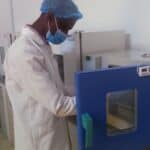-
Asked by base22shy on 16 Jul 2025.0
Question: What basic skills or knowledge should a secondary student focus on to become a successful electrical researcher or innovator
- Keywords:
-
Justa Mwangi answered on 16 Jul 2025:
As a secondary school teacher in Kenya aiming to inspire and guide students toward becoming electrical innovators or researchers, you should emphasize developing a strong foundation in core subjects, alongside critical thinking and practical skills
.
Here are the key areas to focus on:
1. Foundational knowledgeMathematics: A strong grasp of calculus, algebra, and geometry is essential for analyzing and designing electrical systems.
Physics: Understanding the fundamental principles of electricity, magnetism, and circuits is crucial.
Core Electrical Engineering Concepts: Introduce and explain basic electricity concepts (voltage, current, resistance), circuits (series, parallel), electrical principles, and safety practices.
Digital Literacy: Integrate ICT tools into lessons to demonstrate real-world applications and prepare students for using advanced software and technologies in the future.2. Practical and hands-on skills
Workshop Practice: Emphasize practical, hands-on experience through laboratory work and projects to develop skills in electrical installation, maintenance, and troubleshooting.
Problem-solving and Critical Thinking: Encourage students to think critically and apply logical reasoning to identify and solve complex technical challenges.
Circuit Design: Help students learn to design and analyze electrical circuits, which is fundamental for innovation.
Computer Skills and Software Knowledge: Familiarity with programming languages like Python and C, as well as electrical engineering software like SPICE or CAD tools, will be invaluable.3. Nurturing innovation and research mindsets
Promote active and critical thinking: Encourage students to analyze new information and its implications for future problem-solving and decision-making.
Foster curiosity and creativity: Encourage students to explore, question, and devise innovative solutions to real-world electrical challenges, including those relevant to the local Kenyan context.
Encourage inquiry and research: Introduce the basics of engineering research methodology and the importance of inquiry and investigation in developing new technologies and improving existing systems.
Exposure to emerging trends: Keep students informed about the latest developments in electrical engineering, including renewable energy technologies like solar power and biogas.
Indigenous knowledge integration: Where relevant, explore the potential of integrating Indigenous Knowledge (IK) into the sector to drive sustainable economic development.4. Developing essential soft skills
Communication: Help students develop strong communication skills to articulate their ideas effectively, collaborate with others, and present their research and innovations.
Teamwork and Leadership: Facilitate teamwork and leadership opportunities through group projects and activities.
Patience and Adaptability: Nurture these qualities crucial for perseverance in problem-solving and embracing new technologies and approaches.
Attention to Detail and Organization: Stress the importance of meticulousness in design, analysis, and project management to ensure safety, efficiency, and adherence to standards.By focusing on these areas, secondary school teachers can empower students with the knowledge, skills, and mindset needed to become future electrical innovators and researchers in Kenya
-
Jared Maina answered on 21 Jul 2025:
Make sure you are attentive in physics class. Pass your exams in maths too and languages so you can join an engineering or electrical course after highschool. Try do projects for science festivals as these will boost your CV for scholarships
Latest Questions
-
Is it true that ulcers is caused by stress?
-
Is there any prove that shows there’s existing creatures in other planets in exception of planet earth?
-
After four months of pregnancy, the ovary can be removed and the pregnancy remains still gets sustained to the end of
-
What do arthropologist do as professionals
-
what are the core mission of your organisation
Latest Comments
-
Why has it been difficult to make a vaccine for HIV yet it took a short time to make one for COVID-19? (1 comment)
-
Has the tuberculosis cure been foud (1 comment)
-
How long does a research project take? (1 comment)
-
Does your research help the people and the community (2 comments)
-
the time you got the price how did you feel (1 comment)







Comments